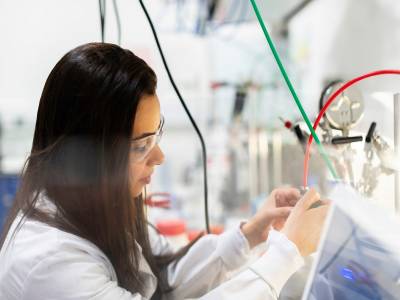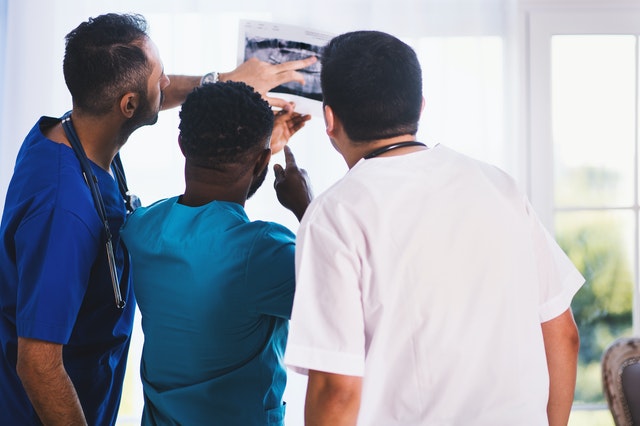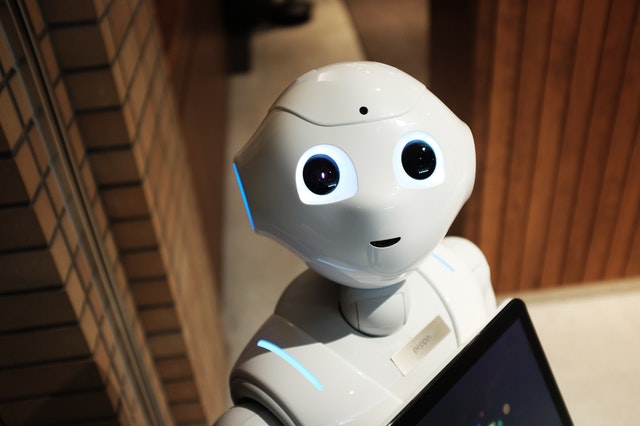Impact of AI on the Health Industry

If there is anything we have really succeeded at in the past centuries of modern human history, it is in the area of health care delivery. Advancements in diagnosis, disease treatment, and general hospital care have raised life expectancy all over the world.
Of course, as humans begin to live longer, newer challenges arise. Pathogens evolve, and there are growing demands for health services. Some of these challenges are too enormous for the current workforce, healthcare structure, and amenities to keep up with.
An aging population, changes in patients’ needs, and a constantly evolving level of innovation are a few of the factors that are transforming how people demand healthcare. For instance, It is projected that by 2050, about one in four persons in North America will be above the age of 65. The implication of this is that healthcare systems will have to deal with patients with complex needs more than ever before.
If we want to keep up with these and other challenges, there is a need for a change in the system to a more proactive one and one that operates more efficiently with greater accuracy than what we currently run. And artificial intelligence might just be the answer to all of these.
AI, according to a definition by the European parliament, can be described as the ability of a computer program to perform tasks or reasoning processes that are typically associated with human intelligence. The fact is that humans have relied on computers for several years, and many of the innovations today, even in the healthcare industry can be attributed to advancements in computing technology.
Computers are currently being used to keep records, analyze patient data, and offer assistive care. However, the only thing better than a computer is an intelligent computer. Artificial intelligence offers several advantages over traditional data analytics and methods currently used in clinical decision-making.
Intelligent algorithms are designed to get more accurate and precise as they are trained with data. This makes them valuable tools for improving productivity in the health care delivery process. Although AI technology is still evolving, the outlook is quite great. The following are some of the expected impacts of AI on disease diagnostics, treatment, care processes, and outcomes in the healthcare industry.
1. Brain-Computer Interfaces That Unify Mind and Machine
The idea of using computers to communicate is not a new one at all. But AI developers aim to take this a bit further by creating brain-computer interfaces that allow the human mind to interact directly with technology without a need for all the hardware clutter.
This technology will have a huge impact on the treatment of neurological trauma and diseases that impact a patient’s basic neurological functions like talking, walking, and interacting with their environment. Elon Musk’s Neuralink is a classic real-life example of the potentials of direct computer-mind interfaces. Not only will this make it easier to track and measure brain activities, but it can essentially help restore abilities that may have been lost forever in certain patients.
Using brain-computer interfaces powered by AI, it will be possible to decode neural activities that are associated with certain activities like the movement of one’s limbs, for instance. This may then be used to help someone who has lost this ability to communicate and control prosthetic limbs like they would have normally done.
Brain-computer interfaces like this have the potential to improve the quality of life of patients with spinal cord injuries, amputation, and various diseases like stroke, ALS, and so on.
2. Improved Healthcare Access
The world needs more healthcare providers, especially specialists like radiologists, ultrasound technicians, and others which are rare in many developing nations of the world. Artificial intelligence can help bridge the deficit by taking over some of the duties that are typically associated with humans, especially in the area of diagnostics.
For instance, somewhere in West Africa with only a handful of x-ray technicians, an AI-powered imaging tool that can screen x-rays and provide an incredibly accurate diagnosis at a level comparable to human radiologists would be an impressive development. Advancements like this will prove valuable in improving healthcare access.
3. Turn Smartphones into Diagnostic Tools
Thanks to artificial intelligence, smartphones are getting smarter, and this is good news for the healthcare sector. In the nearest future, smartphones may provide supplemental assistance to clinical care using AI-powered imaging.
In the coming years, you may be able to run a self-diagnosis by just taking a selfie. Over the past few years, the quality of smartphone cameras has continued to improve. Smartphone manufacturers make use of machine learning algorithms to build image recognition software that relies on a neural network that has been trained with millions of images. This allows them to automatically detect faces, available light, camera angles, and so on for sharper images.
Today, your camera can tell if it is pointed at an animal, food, or human and can automatically adjust light exposure and color for a perfect shot. This feature can be quite beneficial for disease diagnostics. The fields of ophthalmology and dermatology are some of the early adopters of this technology.
There are already tools that are being developed by AI researchers that can identify developmental diseases by simply analyzing smartphone images of a child’s face. The AI algorithm tries to analyze discreet facial features for signs of any craniofacial abnormality. Up to 90 disorders of this nature can be identified using these ordinary images.
The potentials for using a smartphone as a diagnostic tool and the benefits are quite huge. A large percentage of the population already walk around with these powerful devices in their pocket. With all the sensors built into them already by manufacturers, AI developers simply have to find ways to harness them to build software trained to perform these tasks faster and more efficiently.
Another vital application is the use of smartphones to collect important data that will aid medical research and diagnostics. Already, millions of terabytes of data are generated by smartphone users all over the world daily. Smartphone cameras can be used to take images of skin infections, lesions, medications, wounds, and so on. All of that data combined with the power of AI can be used to deliver smarter and more personalized services.
4. Revolutionizing Healthcare Decision-Making
Innovators in the healthcare industry are making constant efforts to move further away from reactive healthcare delivery to more proactive care. This would mean making decisions that will help get ahead of chronic diseases, acute events, or sudden disease deterioration. But for this to work, there would be a need for a more accurate structure for predictive health care and better decision-making.
AI will provide a framework on which the evolution of predictive health care and better clinical decisions will be built. By providing better analytic tools, assisted data interpretation, and decision-making support, health care providers will be able to identify potential problems before they occur and act accordingly.

AI can help provide intensive data analysis of the typically complex data sets that can be used to detect the early signs of conditions like sepsis, seizures, and so on. Machine learning algorithms can also assist in real-time decision-making. For instance, visual EEG data inspection can be quite time-consuming, and the accuracy of the analysis depends on the skill of the clinician involved. Using trained algorithms will improve the speed and accuracy of the process.
5. Building More Intelligent Medical Devices
In the medical environment, smart medical devices are used for various purposes, especially for monitoring patient vitals in the Intensive Care Unit of hospitals. Artificial intelligence can improve the efficiency of these machines by enhancing their ability to help identify deterioration in the condition of patients or sense the possibility of complications. This will not only improve the outcome of treatments but may also help cut down on treatment costs since preemptive care is always cheaper than reactive care.
AI algorithms help to improve the performance of medical devices and reduce the cognitive burdens on physicians. They also ensure that healthcare delivery is timely and efficient. Humans are limited at integrating and aggregating data, but intelligent devices will do a better job and deliver more accurate results and alert providers, so they act swiftly for better results.
6. Improved Personal Health Devices and Wearables
Apart from devices used for health care deliveries in the official health environment, consumers also have access to devices that collect and analyze health-related data. This includes smartphone apps and wearables that track heartbeat and other data about the wearer’s health on the go.
The data collected can potentially supplement data provided by the patient in the organized health settings. Access to this data can offer a unique perspective to healthcare providers in providing services that are tailored to the needs of every individual. Doctors will gain actionable insights about the patient’s ongoing condition and how to manage them better, thanks to data and analytics from these AI-enabled smart devices.
7. Help Healthcare Providers to Do More with the Electronic Health Record
One of the modern advancements in Medicare that has been extremely beneficial is electronic health records. Access to patient data on-demand offers a lot of benefits to the healthcare delivery process. However, there is still an ongoing challenge of extracting relevant data and analyzing them in a timely and accurate manner.
Predictive analytics is crucial for clinical decision making. Integrating all of the data in one place is one thing; being able to extract valuable information for diagnostics is another. An AI-powered EHR analytics tool will be effective for risk scoring and identifying the connection between the data set that would have otherwise appeared unrelated. Machine learning technology can be used to analyze large data sets and make valid predictions that can guide medical practitioners through diagnosis and treatment.
Developers can also create intuitive interfaces that will help automate routine hospital data management processes like clinical documentation, sorting data, and quickly and with a high degree of accuracy.
8. Virtual Assistance and Bot Support
Another highly sought-after application of AI in healthcare is the deployment of virtual assistants and healthcare support bots in both clinical and non-clinical settings. Today, we already have digital access to doctors, but AI can make things even better with computer software built to provide healthcare and assistance virtually.

Like regular smart devices and virtual home assistants like Siri and Alexa, virtual healthcare assistance can potentially help patients manage their daily health better. Virtual assistants of the future will help offer personalized care for patients, especially in outpatient settings. They may assist with timely reminders and tips for patients using drugs like clear choice detox and other medications.
But much more than smart alarms and reminders, virtual assistants can also schedule appointments automatically, track diet, detect failing health vitals, falls, and accidents and call for a caregiver or doctor when necessary.
AI-powered bots of the future may also provide support for healthcare providers in hospital settings. Many caregivers tend to busy throughout the day. With such a tight schedule to keep up with, having an assistant that can track your daily schedule, provide reports and analytics related to a patient when needed, real-time alerts, and so on will be an immense help for caregivers.
Bots can also provide support for patients in cases where physicians or caregivers cannot be immediately available. The future may even see AI-guided bots perform surgical procedures with great precision.
Conclusion
Artificial intelligence is still very much in its infancy. Therefore, many of the points discussed are just predictive benefits based on present innovations in the field. It is difficult to predict just how much AI will transform healthcare delivery. Of course, there are still some complexities and gray areas, especially as regards the ethics and potential risks of adopting AI in healthcare. What is sure, however, is that with increasing innovation and growing adoption, disruption is inevitable.
- Comment
- Posted by Deanna Minich